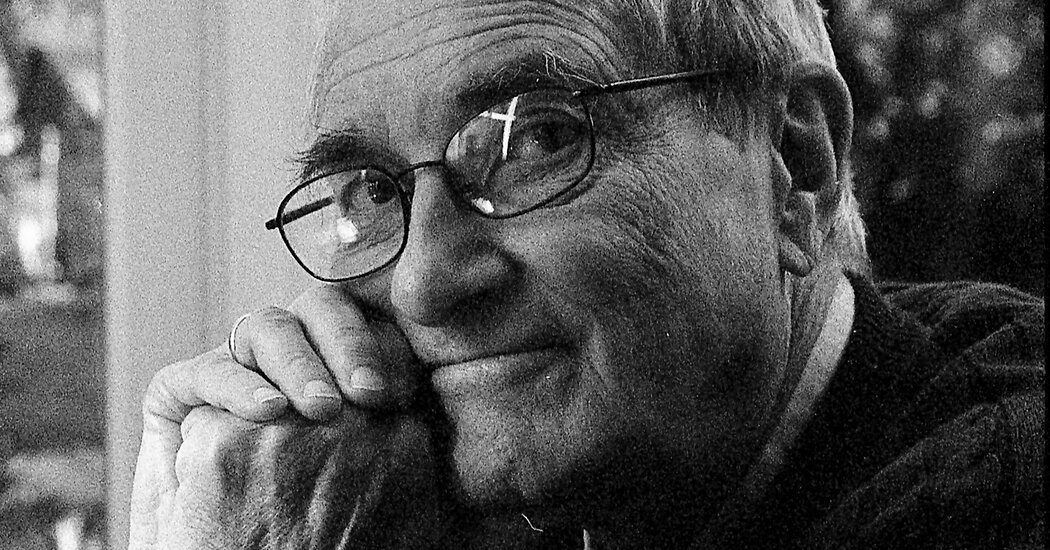Dr. Colin McCord, a surgeon credited with saving countless lives by championing a draconian ban on smoking in New York City and limits on trans fats in processed foods, galvanizing improved health care for Black men in Harlem, and improving maternal and child health globally, died on March 11 at his home in Oxford, England. He was 94.
His son, Andy, said the cause was congestive heart failure.
Dr. McCord, who was known as Coke, trained lay people as paraprofessional doctors and surgeons in Mozambique and other African nations decimated by the departure of medical personnel; proved the efficacy of oral rehydration to save infants stricken with diarrhea in India and Bangladesh; and helped reduce birthrates in Bangladesh by teaching women to deliver advice on contraception and reproductive health. Those international initiatives probably spared millions of lives.
He also exercised a profound impact on public conduct and health policy in New York City.
Dr. McCord successfully lobbied for a ban on smoking in workplaces, restaurants and bars while he was an assistant health commissioner in Mayor Michael R. Bloomberg’s administration. The ban, which took effect in 2003, was later expanded and replicated in jurisdictions around the world.
New York had banned smoking in most restaurants in 1995, but the city continued to allow smoking in bars and the bar areas of restaurants. As the son of chain smokers who both died of cancer, Dr. McCord described himself as “the heaviest secondhand smoker in New York City.”
“It is the most important epidemic of our time,” he said in 2002, when the ban was expanded to include bars. “Each year the Health Department signs death certificates of 10,000 New Yorkers who died because of a tobacco-related cause; 1,000 of these people died because of exposure to secondhand smoke.”
Years earlier, Dr. McCord and a fellow researcher created a sensation when they disclosed in a 1990 article in the authoritative New England Journal of Medicine that Black men in Harlem were less likely to live to the age of 65 than men in Bangladesh, which was one of the world’s poorest nation’s when it was created in 1971.
The report not only caused a stir; it also produced results.
Dr. McCord was named director of a federally funded prevention program at Harlem Hospital, a division of the city’s Health and Hospitals Corporation. Programs were initiated, as recommended by the report, to address the known causes of early death from chronic disease, including breast cancer screenings and neonatal testing. And investments were made to improve the delivery of health care in an overwhelmed system.
Dr. McCord and Dr. Harold P. Freeman of Columbia University and Harlem Hospital, with whom he created the report, concluded that their findings were “not an isolated phenomenon,” and that the racial disparities in life expectancy, particularly for Black men and poor people in general, were mirrored elsewhere in the city and around the nation.
Dr. Thomas R. Frieden, who had been the city’s health commissioner when Dr. McCord was an assistant commissioner, cited his “clarity of thinking, ethical commitment and effective action,” which he said saved lives.
“Coke’s work on child survival made it more likely that millions of children would survive,” Dr. Frieden said in an email. “His work on surgery saved thousands of mothers and children. And his catalytic thinking on trans fat helped trigger a global movement that will prevent millions of deaths from heart attack.”
Dr. McCord was born Colin Wallace Miller on May 15, 1928, in Chicago to Colin Miller, who became a news agency correspondent and movie producer, and George Lial Mickelberry, who was known as Sis.
He was always referred to as Coke, a variation of his father’s nickname, Coco.
His parents’ marriage was annulled within a year, and Coke was raised by his mother, who was a teenager. When he was about 4, his mother married A. King McCord, who became chairman of the Westinghouse Air Brake Company. Coke was formally adopted by Mr. McCord when he was 16.
He enrolled in a military training program at Chicago Harvard School during World War II, but the war ended before the Army could deploy him to the Pacific.
After graduating in 1949 from Williams College in Massachusetts, where he majored in chemistry, he earned a medical degree from the Columbia University College of Physicians and Surgeons in 1953. He served his residency in surgery at Bellevue Hospital and in thoracic surgery at Bellevue and Presbyterian Hospitals.
He married Susan Lewis Hobson in 1954; she died in 2002. He moved to England in about 2004.
In addition to his son, Dr. McCord is survived by two daughters, Mary McCord and Anne McCord Wrublewski; his second wife, Susanne Ehrhardt Chowdhury; a stepdaughter, Bristi Chowdhury; a sister, Leslie Danforth; and four grandchildren.
After completing his surgical residency, Dr. McCord taught at the University of Oregon, Portland; directed rural health programs in India and Bangladesh for the Department of International Health at Johns Hopkins University; and served as director of surgical services at a hospital in Mozambique from 1981 to 1986.
After returning to New York in 1987, he was named associate director of surgery at Harlem Hospital, when he collaborated with Dr. Freeman.
The two men found that while a large proportion of the so-called excess deaths among Black men in Harlem resulted from violence and drug abuse, most of the excess was attributable to other causes.
“The bottom-line problem is poverty,” Dr. Freeman told The Times in 1990. “People who are intensely poor have other priorities. People think present tense. They don’t think future. They think about making it through the day. People are fighting for their lives.”


